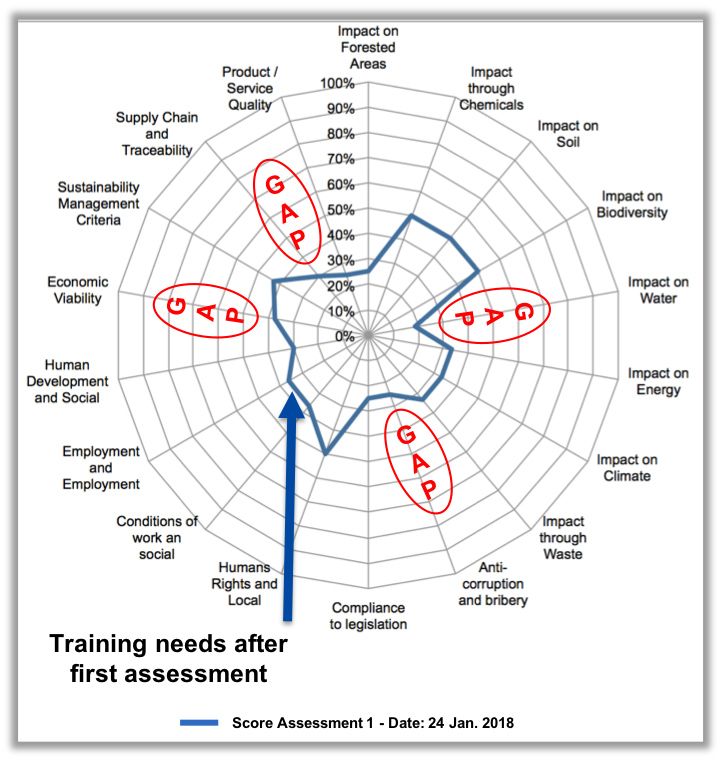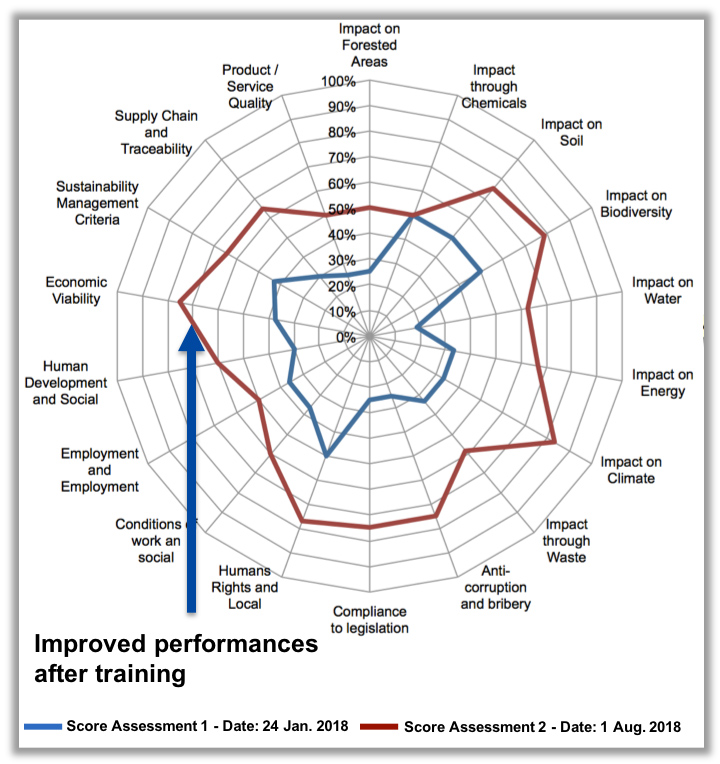Supporting ISCC Tools
GRAS (Global Risk Assessment Services)
GRAS is an innovative and comprehensive web tool offering geo-referenced information about ecological and social sustainability and land use change.
GRAS is the Integrated Solution to Verify and Monitor Compliance With the Most Relevant Sustainability Criteria
- Biodiversity
- Deforestation
- High Carbon Stock
- Social Indices
GRAS Independent Smallholders App
On 22 October 2018, GRAS conducted the first onsite training for interested users, so they could test the technology onsite and benefit from the extensive knowledge of a GRAS expert.

The GRAS Independent Smallholder App allows to manage, analyse and visualise data of Independent Smallholders and Central Offices. It allows to capture the field’s polygons of Independent Smallholders directly onsite.
Watch the GRAS Movie for the Independent Smallholders App for Further Information
TYC (Trace your Claim)
TYC is a ground-breaking traceability database which provides solutions for companies’ key sourcing challenges. TYC can be applied globally for all kinds of materials. It provides traceability along supply chains as each element of the supply chain enters all sourcing information. All the data is transferred from one element to the other throughout the supply chain. This enables the traceability and verification of the chain of custody from the final product back to the source in an online system and helps to identify points of improvement within the supply chains. Furthermore, it enables an easy integration of smallholders into the global supply chains.
TYC is open to all users who want to make reliable claims on sustainability, raw material origin or product characteristics.
Scorecard
ISCC has established a scorecard helping smallholders to identify gaps and to enable customized and focused independent smallholder trainings.
Business Model Tool
ISCC provides a business model tool for the optimum implementation of sustainability certification. Independent smallholders aim at improving their practices to achieve sustainability certification. This goal requires changes and efforts. Implemented measures, implying costs, should be counterbalanced by the benefits of setting up the certification. Depending on the certification organization and the implementation choices, it is possible to maximize the benefits and minimize the costs. ISCC has developed a business model in excel, comparing costs and benefits.


